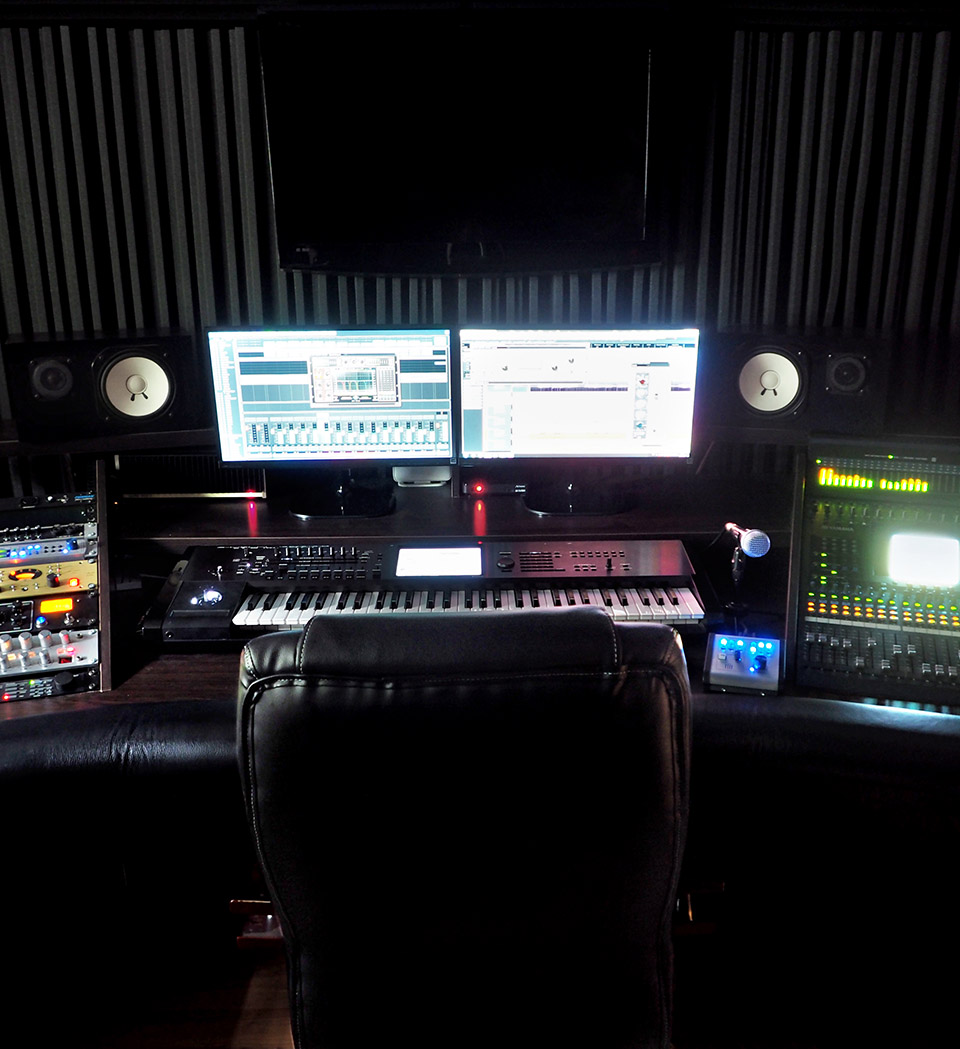How to Soundproof a Music Studio
Soundproofing a music studio requires careful planning and the right materials. The mission is to ensure that the sound quality within a room is impeccable and that no extraneous sound waves interfere. This is why acoustic treatment is vital in the design of home music studios, professional studios, practice rooms, recording studios and even home recording environments. The first step to soundproof a music studio is to build a "room within a room". The idea is to shroud the studio with another room, thereby creating a buffer zone that effectively absorbs sound and prevents any acoustic vibration from escaping. This level of soundproofing, also referred to as sound isolation, safeguards the integrity of the sound frequencies being used and significantly reduces the possibility of airborne sound.
Next, you have to focus on the insulation. The best materials for soundproofing a room are typically heavy and dense to minimize the passage of sound energy. Drywall, mass-loaded vinyl, and fiberglass insulation contribute to absorbing sound waves and controlling high levels of sound. The insulation plays a key role in negating the vibration caused by high levels of sound or high volume of sound. Windows and doors should not be neglected, given their vulnerability to sound leakage. Double-glazed windows and soundproof doors help block the passage of sound waves. This way to soundproof is efficient, given the potential intensities of sound that music rooms usually harbor.
Finally, the use of acoustic treatment, including bass traps, diffusers, and absorbers can regulate sound absorption within a room. These tools help balance out the levels of sound and ensure that the sound quality is optimized. Altogether, soundproofing a home studio isn't just about keeping the sound within but also controlling the sound frequencies that are reflected within it. With the right soundproofing and acoustic treatments, a practice room or home recording studio can reach the level of a professional studio.
Studio
Are you in need of a trustworthy studio space ?
Then you have found the perfect solution as we provide effective, professional and comfortable studio space installations for you. Turn any space into your studio with our installation processes. A lot like our general soundproofing installations we will work closely with you ensuring that you get what you would like, and we install what is perfect for you and your space. The cost of this depends on the lengths we go to during installation with the materials and processes that are used in creation.

Soundproofing Principles
Soundproofing is a fundamental principle in managing acoustic properties, particularly in creating professional music icons like recording studios and practice rooms. Utilizing soundproof techniques allows one to enjoy music without excessive airborne sound that will spread and cause vibrational disturbances. When sound travels, it creates an airborne sound wave that spreads out 360 degrees within the room. This can negatively impact sound transmission, and to prevent this, comprehensive soundproofing methods are deployed. The process of soundproofing typically involves using layers of acoustic materials and dense substances to suppress the energy of the sound. One effective way to soundproof is to decouple the existing wall from the stud wall in a room for music. The decoupling process involves separating the layers of the stud wall to minimize vibration, consequently reducing the sound transmission.
In places like a drum room, it's even more pertinent to soundproof, as these instruments can generate considerable vibration and noise. Soundproofing the stud wall or the wall frames can significantly mitigate this issue, creating a well soundproofed room. Interestingly, soundproofing a recording studio is no mean feat. It usually involves more than one room and needs a dedicated studio team to ensure the soundproofing products effectively uphold the acoustic integrity of the space.
One popular method is to soundproof a timber in the wall frames, which reduces the overall acoustic resonance. The objective is to dampen the noise, thereby providing the best environment for creating professional music. Hence, for a one-room studio, it's crucial to soundproof every corner — from floors, ceilings to all the walls, canceling out any prospective sound bleed issues. In essence, understanding soundproofing principles is vital to enhancing and managing acoustic properties efficiently. ffectively soundproofing a space enables musicians to deliver high-quality sound and results, elevating the overall music experience.
What Is The Best Soundproofing Materials for Professional Recording Studios
The best soundproofing materials for professional recording studios heavily rely on soundproofing systems for recording studios that are specifically designed to contain the airborne sound and prevent any range of sound escaping. These materials are vital when creating a space like a one-room studio or practice rooms from home studios, ensuring a soundproof space.
Acoustic materials like sound insulation and sound blocking components are instrumental in achieving the best quality of sound reduction. When sound hits the walls, floor, or ceiling, it tends to bounce back creating echoes or sound vibrations which can distort the desired clean audio result in music production. The soundproofing materials help absorb these sound reflections, thus enhancing the efficiency of your studio. One popular soundproof material is the acoustic mineral wool. This is used to absorb the sound that would normally transmit through the airways from one room to another. When properly insulated with acoustic mineral wool, the effectiveness of the soundproof space significantly improves. The airborne sound will spread outside or infiltrate into your studio if not properly soundproofed.
Soundproofing systems for recording studios are not only applicable to professional spaces but are also instrumental in smaller spaces like home studios. The goal is essentially the same: to absorb the sound, prevent sound escaping, offer superior sound blocking, and handle sound vibrations. Therefore, whether the studio is for professional or home use, correct soundproofing is mandatory to ensure sound is contained within the studio and unwanted noise is kept out.

